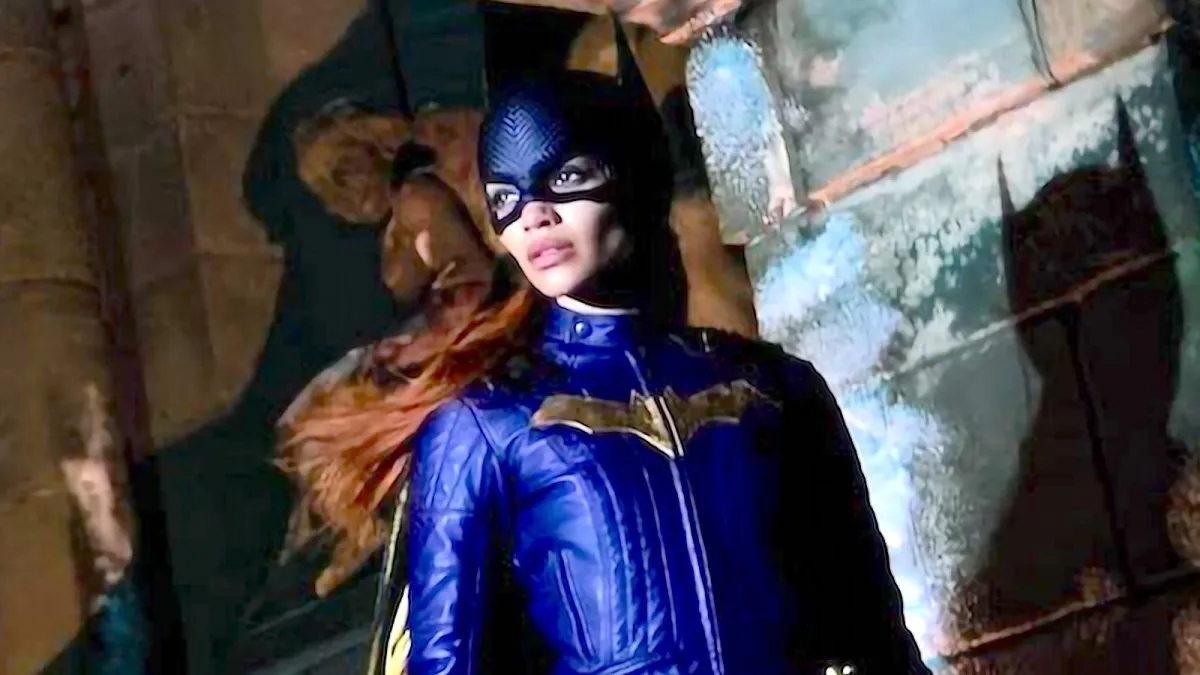The cancellation of the nearly-completed Batgirl film by Warner Bros. Discovery, and the subsequent midnight deletion of a half-dozen unpopular films from its HBO Max streaming service, have sent shockwaves through the industry among fans and professionals. While it might seem shocking to walk back a project that a segment of their audience may be excited about, it’s standard operating procedure that when an executive takes charge of a production house or studio, they clear the decks of projects their predecessors worked on. Usually, the thinking goes that if these are the properties that lost the previous powers-that-be their jobs (or their entire studio), it’s probably best to go in a different direction.
If anything was proved during the recent discourse around the so-called “Snyderverse” of DC Comics-inspired films, it was that comic book movie fans tend to be hyperbolic at the best of times. And so there’s a certain “sky is falling” tone to the panic around the cancellation of Batgirl, which would have featured a return of Michael Keaton to the role of Batman that he first played in the 1988 Tim Burton smash. It has led to vocal fans on social media to announce that this will be the end of HBO Max as a streaming service.
So it is in a new essay in The Hollywood Reporter by Richard Newby, who in the interest of full disclosure is an acquaintance and mutual twitter follow of this journalist. He writes,
“If a Batgirl movie with Michael Keaton was considered too big a risk for Warner Bros. Discovery, that doesn’t bode well for the previously announced “in development” projects like Black Canary, Static, Hourman, Plastic Man and Zatanna. With Wonder Twins already canceled after the casting process, it seems that Zaslav has a lack of imagination when it comes to the variety of characters, tones and genres at his disposal.”
Warner Bros. Discovery’s recent problems with female-led superhero franchises
That’s certainly true, but there’s a case to be made that in the past few years, while Marvel made Captain Marvel a billion-dollar winner and created a ton of positive buzz and fan goodwill around Ms. Marvel, Warner Bros. Discovery failed to turn out female-led superhero movies or TV shows that gained much traction, love, or money.
Not that they didn’t try. The Birds of Prey film was designed as the launch of a series centered around fan-favorite antihero Harley Quinn, and starred Margot Robbie, one of the most popular young actresses in Hollywood. While the film has a relatively “fresh” rating on review aggregator RottenTomatoes, it cleared $200 million at the box office on a $100 million budget, which means that factoring in promotional costs and advertising, which is never accounted for in a film’s official budget, Birds of Prey likely broke even.
There’s also the case of the unrelated TV series Batwoman, recently canceled by network The CW after three seasons after seeing its ratings continue to slide. Again, the universes of Batwoman and Batgirl aren’t related, except for possibly tenuously through the network’s annual “Arrowverse” crossover events.
The Snyderverse Connection
However, Batgirl is related to the “Snyderverse,” a DCEU property that has proven increasingly toxic to Warner Bros. Discovery’s overall brand. In the Batgirl film, J.K. Simmons would have reprised his Justice League role as Gotham police commissioner James Gordon, the father of the titular hero. And WBD execs have vocalized their desire to move on from Snyder’s increasingly-unpopular adaptation of the DC Comics universe, particularly following the revelation that a hefty percent of the aggressive #ReleasetheSnyderverse stans were bots paid for by an unknown party.
And that isn’t even to mention the case of the controversial writer/director Joss Whedon, the center of damning #MeToo-style revelations dating back to his work on Buffy the Vampire Slayer, and most recently Cyborg actor Ray Fisher’s ongoing allegations of racism and verbal abuse on the set of Justice League. It was Whedon who originally began developing the Batgirl film in 2017.
The truth is that the avalanche of bad press and bad will caused by WBD withdrawing Batgirl before it was finished may have started with a genuine desire to move on from the DCEU, a franchise that had begun causing more problems for the studio than it was worth. And with preview audience rating cards revealed to be extremely negative, this may have all started as a ham-fisted attempt to avoid embarrassing the creative team behind the film.
The Zaslav Problem
In any case, until and if Batgirl is ever released in anything like a final form, it will exist as a romanticized “what if?” among fans, the perfect cause célèbre to rally around without having to worry about an accurate and impartial assessment of its actual worth. Much like the controversy around “The Snyder Cut” of Justice League which, when finally released, proved to be a critical disappointment and not as highly-rated as hoped.
The scandal surrounding Warner Bros. Discovery’s recent removal of several films from HBO Max provides a more concrete example of the disparity between fans’ high expectations of what they feel a studio should do versus the actual quality of the films. In this case, we’re talking about a half-dozen, uniformly poorly-reviewed films withdrawn before their contracts expired. So why the outcry over the quiet removal of unpopular films?
Warner Bros Discovery CEO David Zaslav made his career overseeing a network that specializes in low-budget documentaries, often with scripted re-enactments to keep them interesting. Since taking the reins at WB, Zaslav has treated the studio and its assorted properties as another low-budget appendage of his Discovery domain.
Starting with eliminating the CNN Plus streaming service and laying off its employees within two months of its launch, he has proceeded to abruptly and with no notice cut production deals with ancillary networks like TBS and TNT, as well as with major and important talents like J.J. Abrams.
With Zaslav determined to make enemies of the majority of Hollywood within the first six months of his tenure, there seem to be two possible outcomes for this continued line of action; first would be an eventual degradation of Warner Bros. from a major studio whose 1925 origin story arose with the dawn of motion pictures, to a poverty-row production company selling off its prestige properties for major cash. The second would be the ouster of Zaslav as CEO by its stockholders.
In any case, it seems unlikely that HBO Max — or Warner Bros. Discovery, for that matter — are doomed. Though new to the streaming game, HBO Max already occupies a position prominent enough to withstand a scandal that will likely prove minor, if notable, in the ongoing history of a studio that has already weathered nearly a century of good and poor fortune.











Published: Aug 4, 2022 06:18 pm